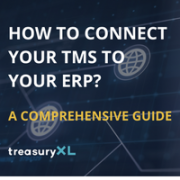Commercial Paper – alternative short term funding
| 03-01-2018 | treasuryXL |
There are many different products that a company can use to meet its funding requirements. These products mainly fall into (but are not exclusive to) 2 major categories – equity or debt. Within both categories that are many different bespoke products that can be used. Debt can be either for long term or short term – both in respect to the tenor and the interest rates. Furthermore, interest rates can be fixed or floating. In this series we shall be looking at popular products that are used to help fund a business.
Definition
Commercial Paper is a money market product issued by large companies to receive funding for short term needs. The tenor (maturity) is normally for a short period up to 270 days. The paper is a promissory note that is unsecured – there is no collateral/security offered against the paper. As such Commercial Paper is normally only ever issued by large well-known companies who have credit ratings.
How it works
When a company needs short term funds it can issue paper (promissory note) against receiving the funds. Issuance can take place either via a recognized dealer who can sell the paper into the money markets, or paper is directly issued to an investor who wishes to buy and hold the paper until maturity. Paper is normally issued at a discount to its face amount and redeemed at par.
The programme
Commercial Paper is subject to a company issuing a programme. This provides details as to the maximum amount that can be borrowed; the lifetime of the programme; registered dealers etc.
Why borrow?
Commercial Paper allows a company to be flexible in its short term funding. Yields are, traditionally, lower than bank borrowings and are not subject to additional bank covenants. A company can benefit quickly from changes in interest rates. It is both a quick and inexpensive way to raise short term working capital.
Why lend?
It allows lenders to get a better yield than available if they placed their funds on deposit with a bank. The paper is negotiable – this means that the paper can be sold on in a secondary market. If a lender suddenly had a funding issue, they could sell the paper to a third party, rather than approaching their bank for funding. As the issuers have credit ratings, it is possible to apply your own criteria with regards to who you will accept as a counterparty.

Cash Management and Treasury Specialist











